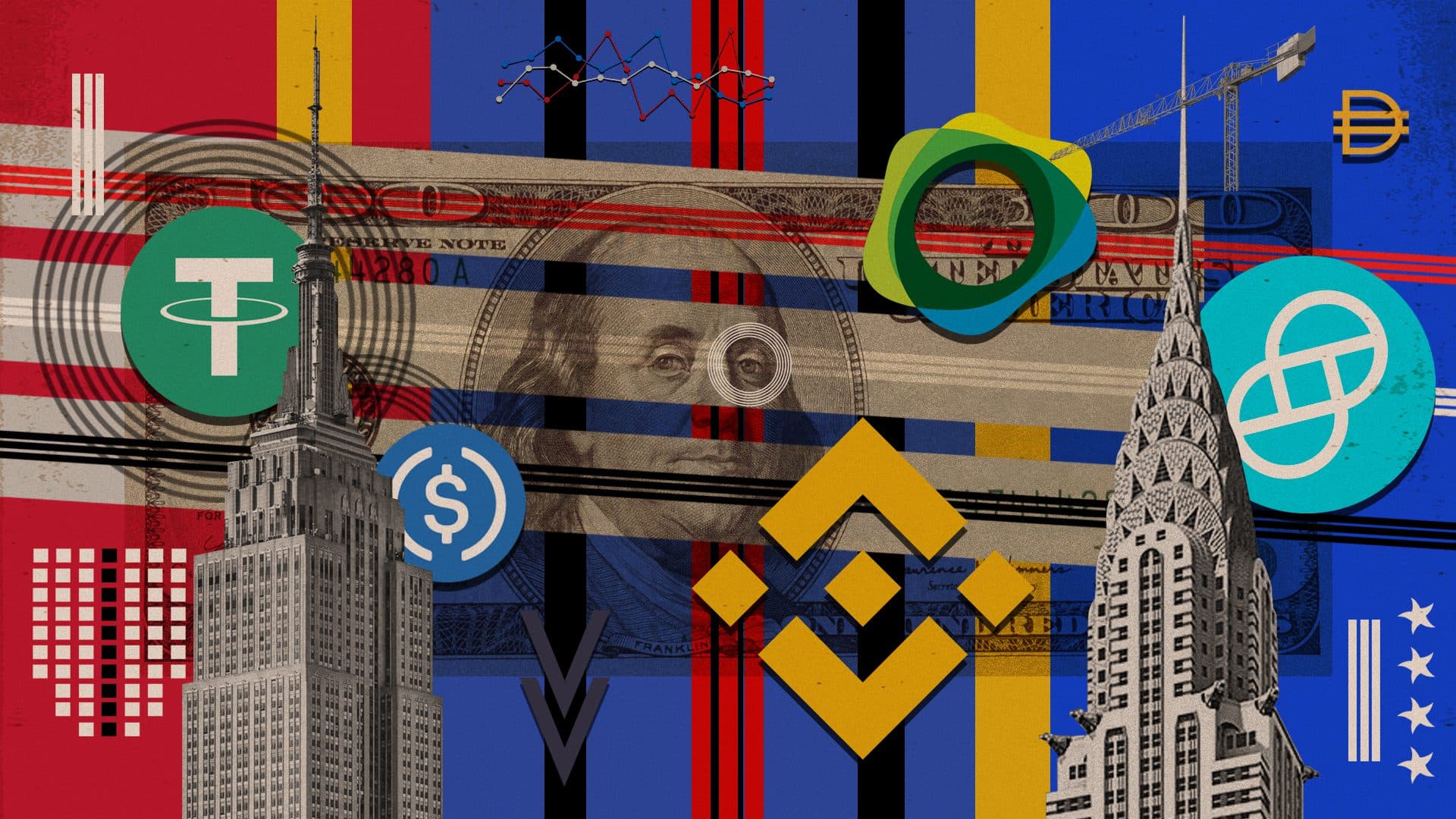Treasury Official Says Stablecoin Issuers Must be Banks to Ensure Security
Some representatives, however, said the move would crowd crypto-native stablecoin issuers out of the market

Blockworks Exclusive Art by Axel Rangel
key takeaways
- A Treasury official appeared before Congress Tuesday to defend the recent report on stablecoin policy recommendations
- To protect consumers and the stability of the financial system, stablecoin issuers must be federally insured depository institutions, the official said
The US Treasury wants to make stablecoins the domain of banks — but not all members of Congress are on board.
Only licensed banks, in the interest of consumer protection, should be allowed to issue stablecoins, according to Jean Nellie Liang, the under secretary for domestic finance at the US Department of the Treasury.
Liang, who appeared before the US House of Representatives Committee on Financial Services Tuesday, reaffirmed a November report on stablecoin regulation that called for the tokens to be issued exclusively by insured banks.
“The proposal for issuers to be insured depository institutions is designed to make [stablecoins] stable, and I think stability is probably the key attribute of a good stablecoin,” Liang said during her testimony.
The move, however, would allow large banks to dominate the space and push out crypto-native companies, according to Rep. Roger Williams (R-Texas).
Added Rep. Andy Barr (R-Ky): “It’s inconsistent to take the position that only banks should be allowed to issue stable coins but then fail to grant bank charters to the largest issuers of stable coins.”
The report Liang referenced posits that allowing technology companies to issue stablecoins threatens financial stability.
Federally insured institutions, meanwhile, have stricter oversight, Liang said — which would help ensure the security of stablecoins and their underlying assets.
“I do have concerns about the opacity of the reserve assets of stablecoin issuers,” she said. “That is, in fact, one of the reasons for our first risks that we identified, the run risk, and the potential that could have for other short-term funding markets if investors were to become concerned about the quality of the assets underlying a stablecoin.”
Liang suggested that approved stablecoin issuers would face less regulatory red tape than banks, however.
“Regulation and supervision of ideas can be quite flexible, and stablecoin issuers that have a simple business model of holding high quality reserve assets — and issuing liabilities such as stablecoins — would be subject to a very much less stringent type of supervision and regulation that would a traditional commercial bank,” she said.
Others argue that Liang and the group behind the report are basing their recommendations on stablecoins as an investment vehicle instead of a payments and settlements tool.
“When we’re looking at stable coins, they are tied to fiat currency like the US dollar, and because of this, it’s arguably a very low, low impact use case in terms of investment,” said Michael Fasanello, director of training and regulatory affairs at Blockchain Intelligence Group. “I think the president’s working group may have attributed some great risks of this as far as an investment capacity, but that type of risk is not there when it comes to stablecoins.”
The hearing follows a Monday report from the Federal Reserve Bank of New York, where analysts and economists said that stablecoins are “unlikely” to become the future of payments.
While stablecoins were designed to be a better form of money than other cryptocurrencies, like bitcoin, they may be a “double-edged sword,” the report noted.
Get the news in your inbox. Explore Blockworks newsletters:
- The Breakdown: Decoding crypto and the markets. Daily.
- Empire: Crypto news and analysis to start your day.
- Forward Guidance: The intersection of crypto, macro and policy.
- 0xResearch: Alpha directly in your inbox.
- Lightspeed: All things Solana.
- The Drop: Apps, games, memes and more.
- Supply Shock: Bitcoin, bitcoin, bitcoin.





